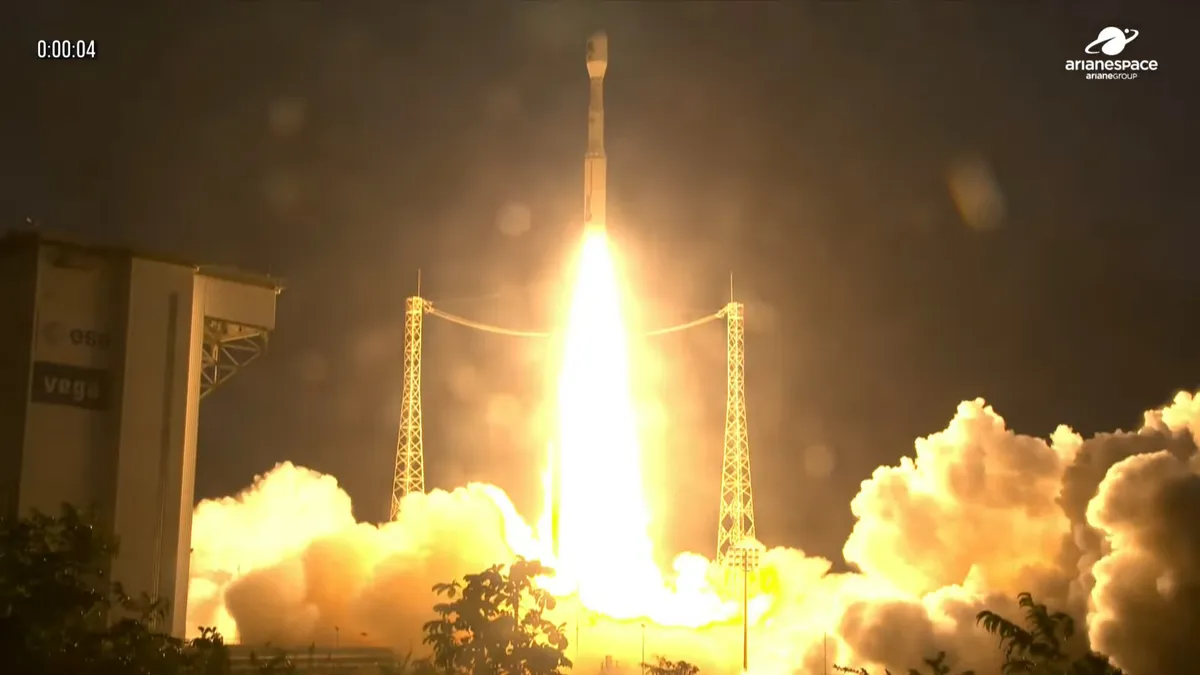
In a significant advancement for environmental monitoring, a European forest-monitoring satellite, known as Biomass, successfully launched into orbit from South America early Tuesday morning on April 29. The launch, executed by the European Space Agency (ESA), took place atop a Vega-C rocket from Europe's Spaceport located in Kourou, French Guiana, at precisely 5:15 a.m. EDT (09:15 GMT; 6:15 a.m. local time in Korea).
The live stream of the launch, provided by Arianespace, began at 4:55 a.m. EDT (08:55 GMT), and the event is available for on-demand viewing. This marks the fourth launch for the four-stage, 115-foot-tall (35-meter-tall) Vega-C rocket, which has shown resilience following an anomaly in its second stage that resulted in mission failure in December 2022. The Vega-C made a successful comeback on its third launch by successfully deploying the European Union's Copernicus Sentinel-1C Earth-observation satellite into orbit last December.
If all goes according to plan, the Vega-C rocket is set to deploy the Biomass satellite into a sun-synchronous orbit at an altitude of 414 miles (666 kilometers) approximately 57 minutes post-liftoff. Weighing 2,490 pounds (1,130 kilograms), Biomass will enter a critical checkout phase following its deployment. This phase is essential to prepare the satellite for its Earth-observation mission, which is expected to span a minimum of five years.
As part of ESA's Earth Explorers satellite series, Biomass will leverage advanced synthetic aperture radar (SAR) technology to monitor and analyze the planet's diverse ecosystems, with a particular focus on forest environments. The SAR instrument onboard Biomass is designed to collect vital information regarding the height and structure of various forest types, as well as to quantify the amount of carbon stored within the world’s forests and track its fluctuations over time. Information on these capabilities is detailed in the mission's press kit, available through Arianespace.
The launch of the Biomass satellite is a crucial step toward enhancing our understanding of forest ecosystems and their role in combating climate change. By monitoring forest health and carbon storage, Biomass will provide valuable data that can inform policy decisions and conservation efforts globally.
As the mission progresses, the insights gained from Biomass will play a pivotal role in sustainable forest management and environmental protection, ultimately contributing to a healthier planet.